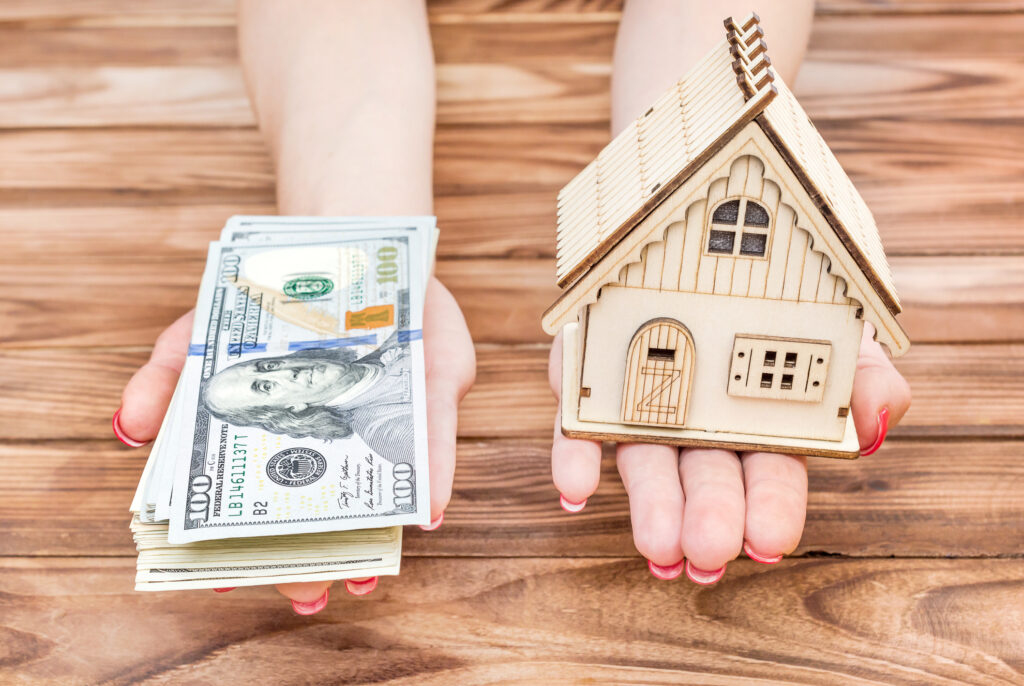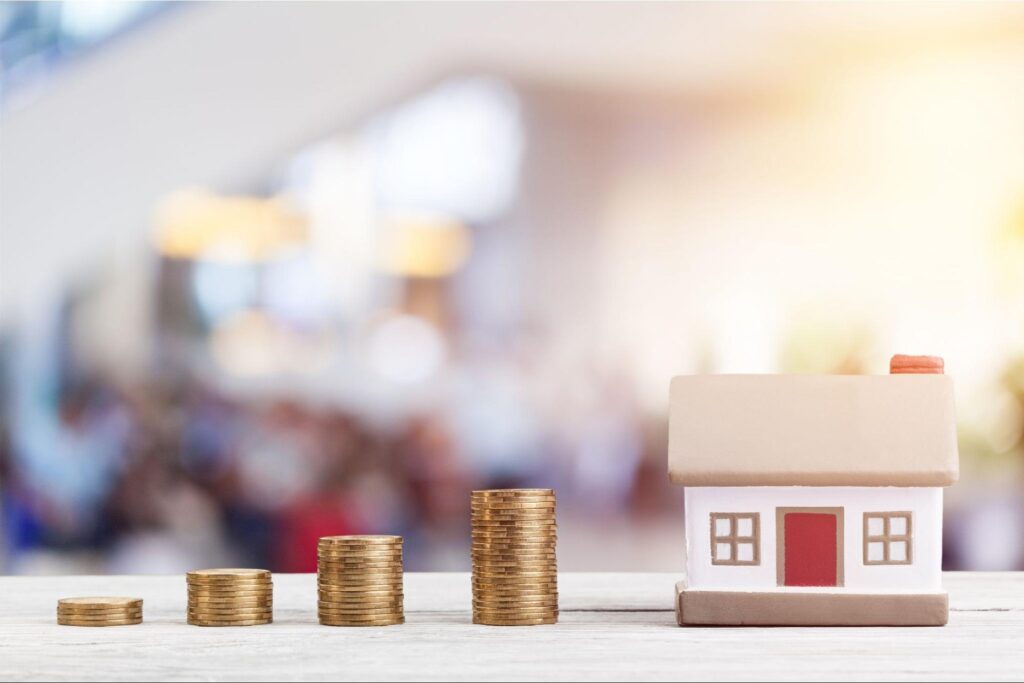Have you ever wondered how much your home is worth? The answer isn’t as simple as looking up your property’s value on a real estate website. Your home equity is the portion of your property’s value that you own outright, without any liens or other claims against it. To calculate home equity, subtract any outstanding mortgage or loan balances from the property’s appraised value or fair market value.
In this article, we’ll discuss what home-equity is and how it can be used. We’ll also explore the risks associated with using and how you can access it.
Home-equity is the portion of a property’s value that the owner owns outright, without any liens or other claims against it. To calculate , subtract any outstanding mortgage or loan balances from the property’s appraised value or fair market value.
For example, if a home has an appraised value of $200,000 and the owner owes $100,000 on a mortgage, the would be $100,000.
What are some ways to use home-equity?
There are a few different ways that people can use their. Some common uses include
Home improvements: With extra cash in hand, you can make much-needed repairs or upgrades to your home.
Debt consolidation: If you have multiple debts with high-interest rates, you can use to pay them off and consolidate your debt into one monthly payment.
Investments: You can also use to invest in other opportunities, such as stocks, real estate, or small businesses.
How can you use home-equity?
There are several ways that homeowners can use. Perhaps the most common way is to use it for home improvements. With more equity in the home, owners have more options when it comes to making renovations. They may be able to take out a loan or line of credit to finance the project.

Another popular way to use home-equity is debt consolidation. This involves taking out a loan or line of credit and using the funds to pay off outstanding debts. This can be a good way to save money on interest payments and reduce monthly payments by consolidating multiple debts into one.
Investors may also choose to use their home-equity to buy investment properties or to finance other investments. This can be a risky move, as the value of the investment may not increase as much as hoped, but it can also lead to big profits if things go well.
For those who are not familiar with it, a loan is a type of loan that uses the borrower’s home-equity as collateral. This means that if the borrower defaults on the loan, the lender could foreclose on the house. Home-equity loans usually have fixed interest rates and repayment periods of five years or more.
The benefits of using home-equity include being able to access funds for large purchases or investments, potentially getting a lower interest rate than with other types of loans, and having the option of fixed or variable repayment terms. However, there are also some risks associated with using home-equity, such as losing your home if you can’t make payments, owing more than your home is worth if property values decline, or having a harder time qualifying for a HELOC if your credit score has decreased.
What are the risks of using home-equity?
Losing your home: The biggest risk associated with using home-equity is that you could lose your home if you can’t make payments. When you take out a home-equity loan or line of credit, your home is used as collateral. This means that if you can’t repay the loan, the lender could foreclose on your home and you could end up homeless.
Owing more than your home is worth: Another risk of using home-equity is that you could end up owing more than your home is worth if property values decline. If you take out a home-equity loan or line of credit and then property values decrease, you could end up owing more than the value of your home. This would be a difficult situation to get out of and could result in losing your home.
Having a harder time qualifying for a HELOC: A final risk associated with using home-equity is that your credit score could decline, making it harder to qualify for a HELOC. If your credit score decreases, it will be more difficult to get approved for a HELOC. This could limit the amount of money you can borrow against your home-equity and make it more difficult to finance necessary repairs or improvements.
How can you access your home-equity?
There are several ways homeowners can access the equity in their homes. One way to do this is to take out a loan, which is a fixed-rate loan with set repayment terms. Homeowners can also take out a line of credit, which is a revolving line of credit that can be drawn upon as needed. Additionally, cash-out refinances can be used to access , and finally, homeowners can sell their property and use the proceeds to pay off any existing mortgages and keep the rest as cash.
Taking out a loan or line of credit is one way homeowners can access the funds they need for large purchases or investments. loans typically have lower interest rates than other types of loans, such as personal loans or credit cards. This makes them an attractive option for borrowers who are looking to save money on interest payments. Additionally, home-equity loans typically have fixed repayment terms, which can make budgeting and planning easier for borrowers.
However, there are some risks associated with taking out a loan or line of credit. For instance, if a borrower defaults on their loan payments, they may lose their home to foreclosure. Additionally, if property values decline, borrowers may end up owing more than their home is worth. As a result, it’s important for borrowers to consider all the risks before taking out a loan or line of credit.
Another option for accessing is through a cash-out refinance. A cash-out refinance is when homeowners take out a new mortgage that is larger than their existing mortgage balance and use the extra funds to pay off other debts or make improvements to their home. While cash-out refinances can be helpful in some situations, there are also some risks to consider before taking one out. For example, cash-out refinances typically have higher interest rates than traditional mortgages. Additionally, by taking on a larger mortgage balance, homeowners will have more debt and may end up owing more than their home is worth if property values decline. As with any type of loan product, it’s important for borrowers to understand all the risks involved before taking out a cash-out refinance.
The final option for accessing is through selling one’s property and using the proceeds to pay off any existing mortgages and keep the rest as cash. This option may be appealing to homeowners who are looking to downsize or move into a different type of property altogether. However, it’s important to note that selling one’s property will likely trigger taxes on any gains made from the sale price minus the original purchase price paid for the property. Additionally, selling one’s property may not be possible in all situations (such as if the homeowner is underwater on their mortgage). As such, it’s important for homeowners to speak with a qualified tax professional and real estate agent before making any decisions about selling their property.

In conclusion, is the portion of a property’s value that the owner owns. It can be used for home improvements, debt consolidation, or investments. However, there are risks associated with using , such as losing your home if you can’t make payments or owing more than your home is worth if property values decline. Homeowners should carefully consider all of the risks and benefits before taking out a loan or line of credit against their home equity.